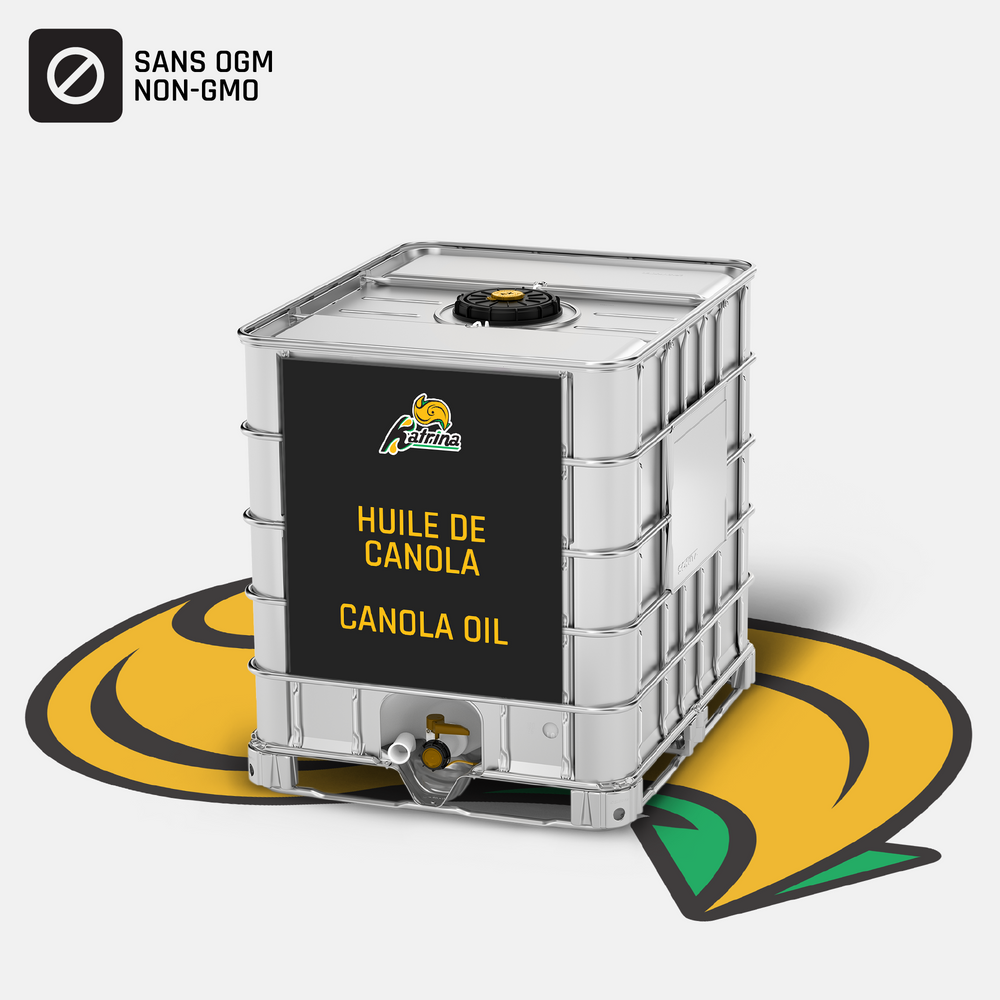Which Cooking Oils are Non-GMO?
The cooking oil you choose affects not just the flavour of your meals but also your health. With growing awareness of food quality, non-GMO oils have become increasingly popular as people seek to avoid genetically modified ingredients.
While GMO oils can offer benefits such as higher crop yields and improved resistance to pests, they are often associated with pesticide use and concerns about long-term health effects. Non-GMO oils, on the other hand, are linked to more health benefits and lower exposure to synthetic chemicals.
In this guide, we’ll list down common GMO and non-GMO oils and answer your questions about them to help you make informed choices for your kitchen.
Non-GMO Cooking Oils
Not all plants used for cooking oil production have been genetically modified, which makes them a reliable and safe non-GMO option. These oils include:
-
Olive Oil
-
Avocado Oil
-
Coconut Oil
-
Sunflower Oil
-
Sesame Oil
Why Are Some Oils Naturally Non-GMO?
Certain oils, like olive oil, sunflower oil, avocado oil, and coconut oil, are naturally non-GMO because there are no genetically modified versions of these plants on the market.
Take olive oil, for example. Olive farming has relied on traditional cultivation and production methods for thousands of years, preserving the genetic purity of the plant. As a result, olive oil is inherently non-GMO, regardless of whether it carries a specific certification. The same principle applies to sunflower, avocado, and coconut oils, making them dependable choices for anyone looking to avoid genetically modified ingredients.
Common GMO Oils
Some cooking oils are commonly made from genetically modified crops. Below are the main GMO oils and reasons to consider alternatives:
Soybean Oil
94% of all soybean crops are genetically modified to resist herbicides. While this trait helps increase crop yields, it also results in higher levels of pesticide residues in the final product.
Canola Oil
Canola oil is a popular choice for cooking, but most canola crops today are genetically modified. In fact, 95% of canola grown in Canada is engineered for herbicide resistance.
Corn Oil
Around 92% of U.S. corn is genetically modified, making GMO-free corn oil difficult to find without certifications. Corn oil is also heavily refined, which reduces its nutritional value and can introduce trans fats.
Cottonseed Oil
Cottonseed oil is a byproduct of cotton farming. Cotton itself is not classified as a food crop, so it is subject to more intensive pesticide use than food crops. This oil is also highly processed, so it's one of the least healthy cooking oil options.
If you can’t completely avoid these oils, opt for certified organic or non-GMO options whenever possible. These versions are less likely to contain synthetic chemical residues and often retain more of the oil’s natural nutrients.
How to Find Healthy Non-GMO Cooking Oils
- Choose naturally non-GMO oils like olive, sunflower, or avocado oil. Be cautious with oil blends (including vegetable oil) unless they are specifically labelled as entirely non-GMO.
- Check labels or ask the manufacturer for certifications like Non-GMO Project Verified, which confirms that the oil is free from genetically modified ingredients. Another reliable certification is USDA Organic, which ensures the oil is both non-GMO and adheres to organic farming standards.
- Partner with a reliable oil distributor to find oils that meet your specific requirements. For businesses or large-scale cooking needs, working with trusted suppliers with expertise in sourcing and product standards, like Distributions Katrina, ensures consistent access to high-quality non-GMO oils.
Additionally, you can reduce exposure to GMO oils through your food choices. Try to avoid highly processed foods since many GMO oils like soybean and corn are used in processed snacks, fast foods, and pre-packaged meals.
FAQs
What’s the healthiest non-GMO oil?
Extra virgin olive oil is one of the healthiest cooking oil options. It’s rich in antioxidants and monounsaturated fats that support heart health and reduce inflammation.
What’s the difference between non-GMO oils and organic oils?
Non-GMO oils are made from plants that haven’t been genetically modified. However, these oils may still be exposed to synthetic pesticides and fertilizers during cultivation. Organic oils, on the other hand, are always non-GMO and are produced using strict farming practices that avoid synthetic chemicals entirely.
What are the best non-GMO oils for high-heat cooking?
Avocado oil and high-oleic sunflower oil are excellent choices for high-heat cooking because their high smoke point and stable fat composition prevent them from breaking down at high temperatures.
Related post: Cooking Oil Smoke Point Chart: What's Best for High Heat?








